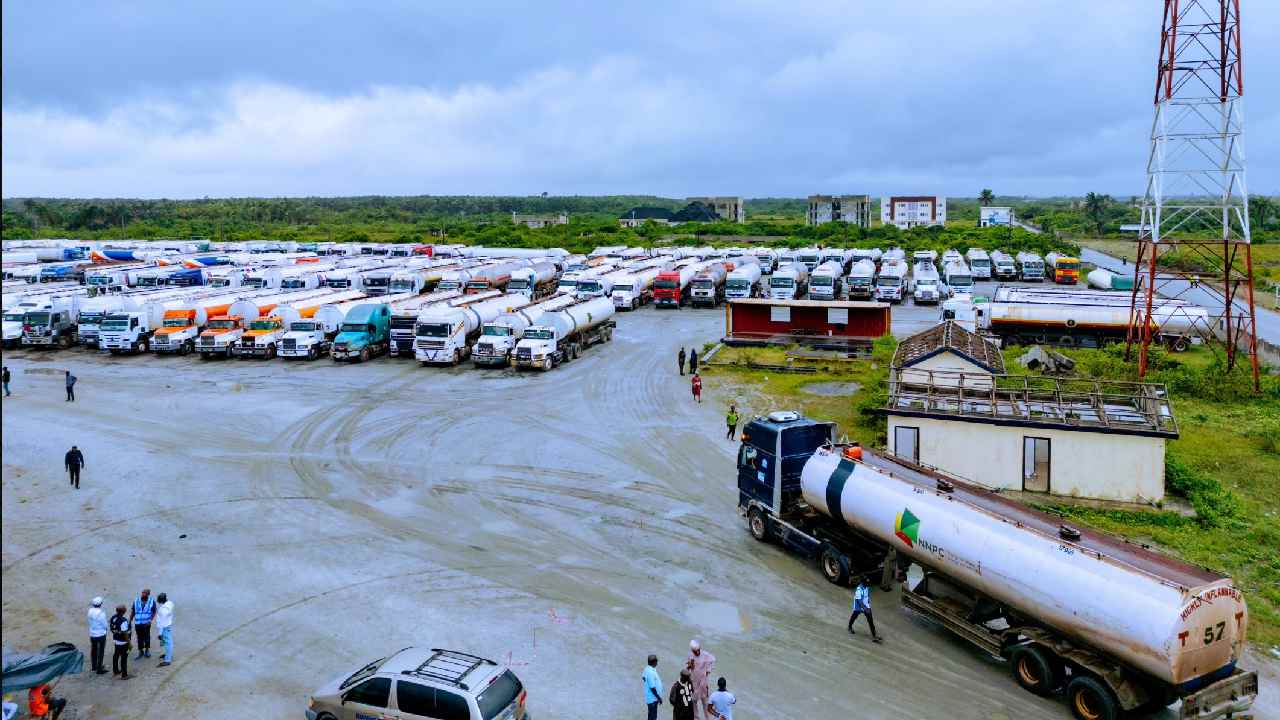BUSINESS

THE COST OF LANDING FUEL HAS DECREASED TO N774 PER LITRE.
The landing cost of premium motor spirit has fallen to N774.82 per litre, which is lower than the ex-depot price of Dangote Refinery's fuel, priced at N825 per litre.
This was revealed in the latest daily energy data from the competency centre, released by the Major Energies Marketers Association of Nigeria (MEMAN) on Tuesday. According to MEMAN's data, the estimated import parity into tanks has decreased to N774.82 per litre, marking a reduction of N152.56, or 16.5%, from the N927.48 per litre quoted on February 21, 2025, for petrol. This development comes as the global oil price decline continues.
As of Wednesday morning, March 12, 2025, Brent Crude had dropped to $70, while US WTI stood at $66.70, compared to approximately $76 and $69 in February. The decrease in global crude prices has led to a reduction in fuel import costs, which now stand at N774.82 per litre, according to MEMAN's data.
This suggests that fuel prices could fall further to around N800 per litre, down from the lowest retail prices of N860 and N880 per litre in Lagos and Abuja in the coming days. It’s worth noting that at the beginning of March and last month, the Nigerian National Petroleum Company Limited and Dangote Refinery reduced their petrol retail prices to N860 and N880 per litre in Lagos and Abuja.
The recent decline in fuel import landing costs is expected to intensify the price war between Dangote Refinery, NNPC, and fuel importers. In response, Chinedu Ukadike, spokesperson for the Independent Petroleum Marketers Association of Nigeria, stated that petrol prices could drop to N800 per litre.
“Crude oil is a major factor in fuel production, so any further reduction in its price would certainly lead to a decrease in petrol prices, potentially bringing it down to N800 per litre,” he said.
Earlier, Billy Gillis-Harry, President of the Petroleum Retailers Outlets Owners Association of Nigeria, in a meeting with the Nigerian Petroleum Minister of State, Heineken Lokpobiri, called for a petrol price stability framework to protect both petrol retailers and marketers from potential losses. He also called for fostering healthy competition in the petroleum downstream sector by diversifying petrol sources.
“This will promote healthy competition and ensure that domestic prices do not exceed import parity, thereby guaranteeing the most affordable prices with long-term sustainability,” he stated. It’s important to note that petrol retailers and marketers have cited concerns over market competition, competitive pricing, and limited petrol production capacity as reasons for the continued importation of petrol, despite Dangote Refinery’s fuel production.
This comes as the National Bureau of Statistics’ foreign trade data reveals that petrol imports increased by 105 percent, reaching N15.4 trillion by the end of 2024.
"This represents a significant development in our ongoing coverage of current events."— Editorial Board









